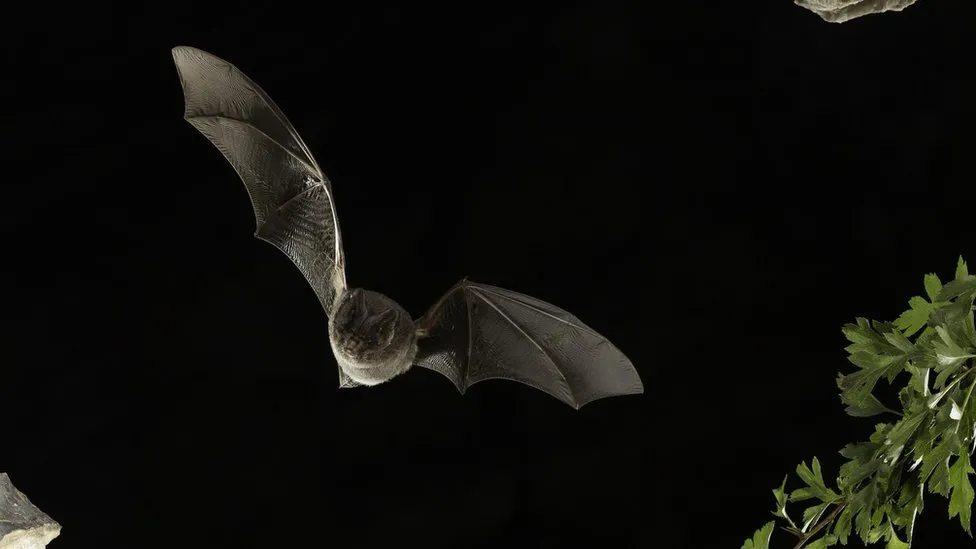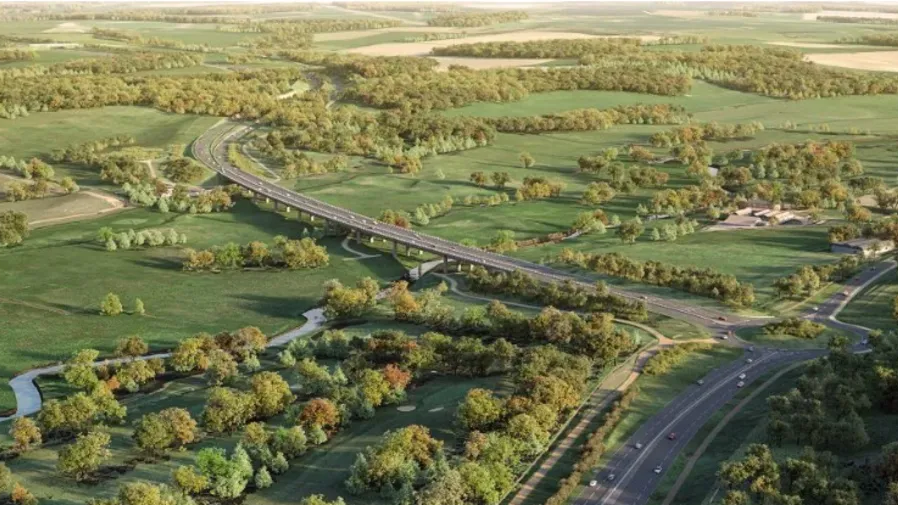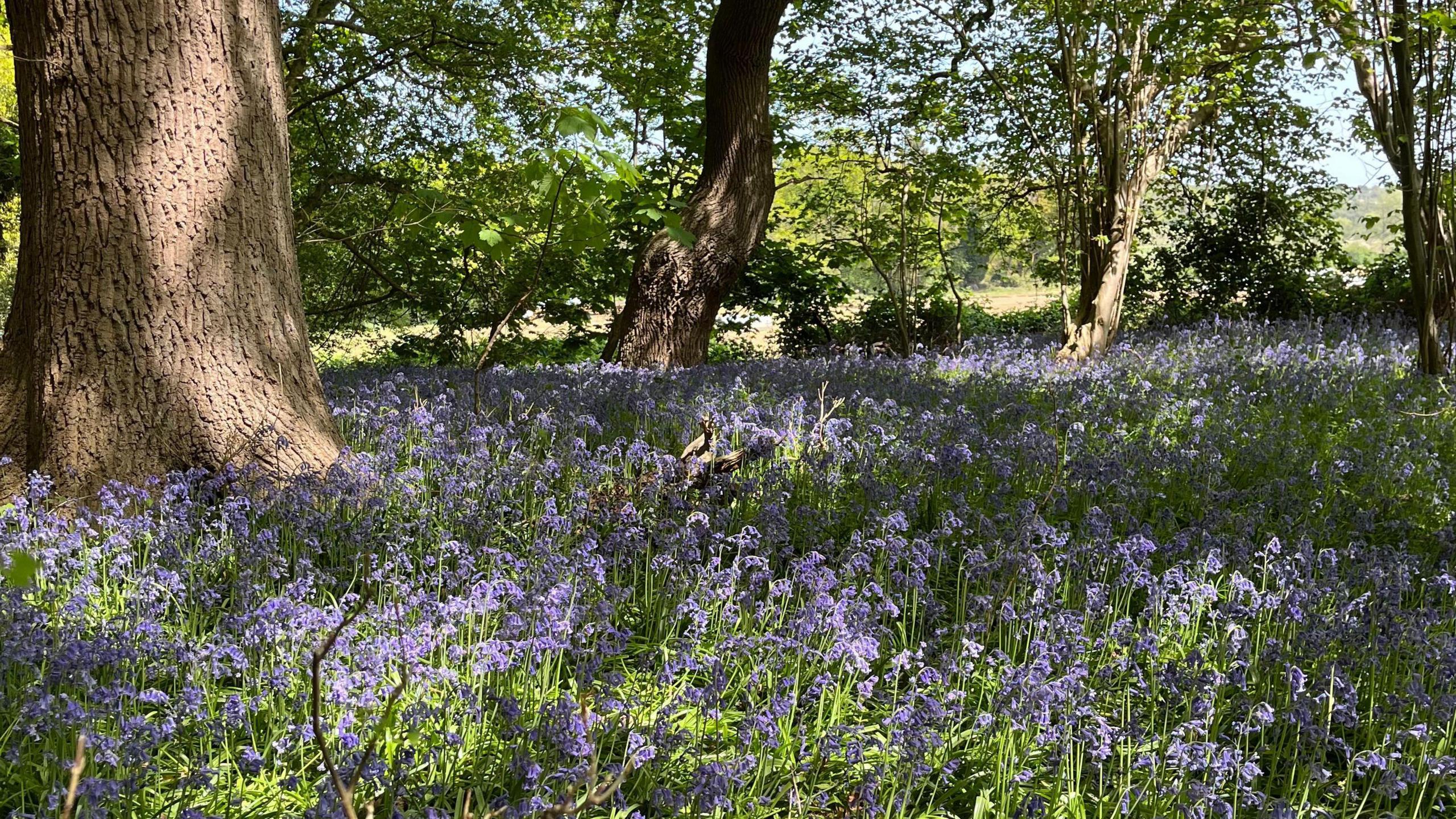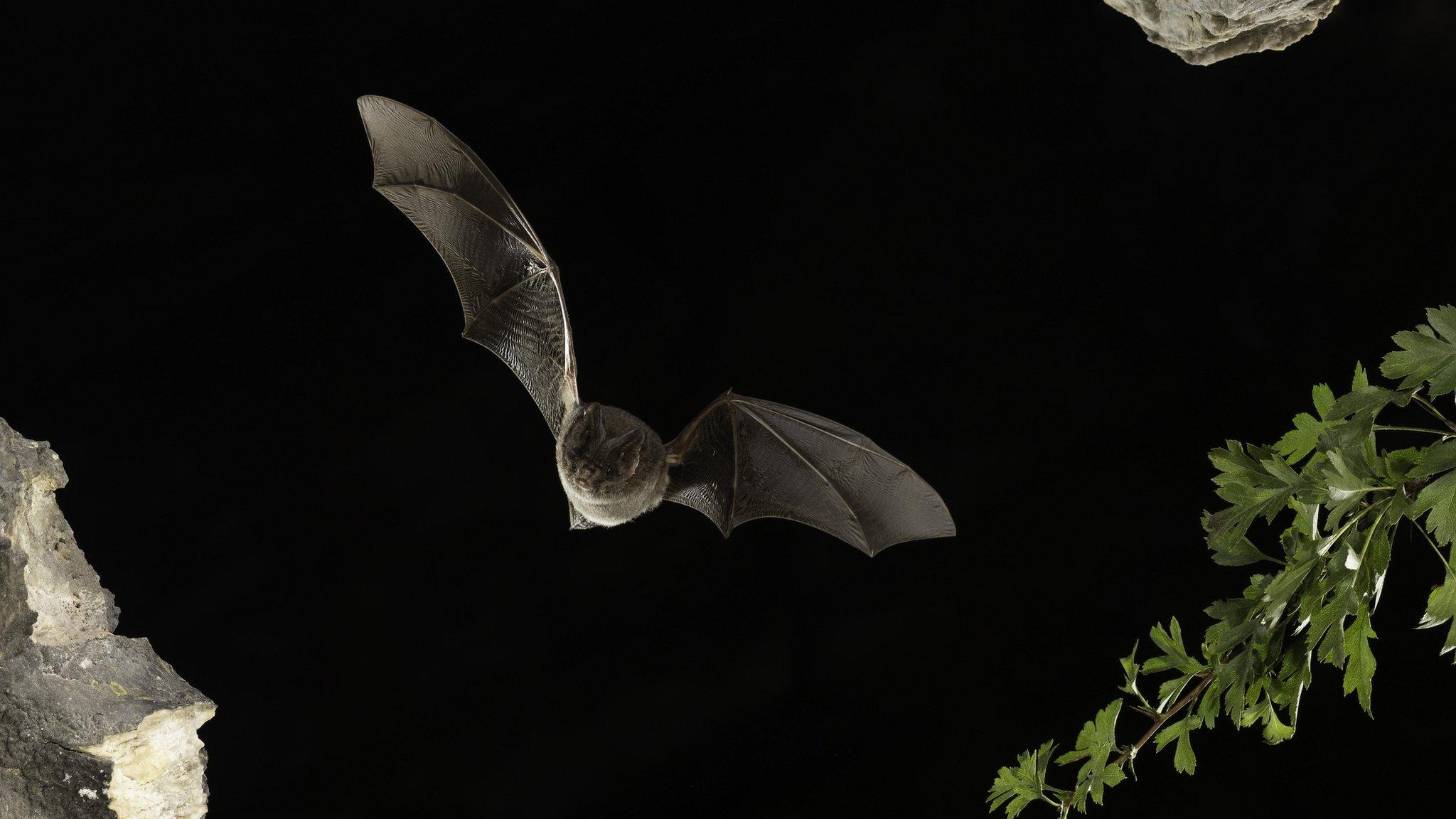Controversial road would 'destroy' bat population

Natural England said Barbastelle bats are "incredibly rare"
- Published
Government advisers have confirmed that they have objected to plans for a controversial road in Norfolk.
Earlier this year, Natural England changed rules protecting rare Barbastelle bats which live on the route of the proposed £274m Norwich Western Link.
In a move which puts the project in serious doubt, it has said it objects to the proposal as the road "would destroy one of the largest remaining populations in the UK".
Norfolk County Council insisted the plan, which would connect the Broadland Northway at the A1067 with the A47 at Easton, was "well-considered and thorough".

The Western Link would complete a ring-road around Norwich
Graham Plant, the Conservative Cabinet Member for Transport, said: "While we have managed to resolve some of the points Natural England raised in March, others remain unresolved, which is disappointing given the scale of mitigation measures included in our proposals."
When Natural England made its announcement in March, council leader Kay Mason Billig admitted that it was a major obstacle for the plan.
"Unfortunately [Natural England] have now revised its guidance which means the bar that we will have to leap over will be almost impossible to achieve."
Under the previous, Conservative government, the Department for Transport approved funding for the road scheme and the council had said it aimed to have preparatory building work starting at the end of 2025.
The proposed road has been controversial, with opponents suggesting it would badly damage the environment in the Wensum Valley, while supporters have argued that it is vital to improve transport links in Norfolk.
A consultation on the council’s plan came to a close yesterday, and Natural England said it had lodged an objection.
Get in touch
Do you have a story suggestion for Norfolk?

Councillor Graham Plant insisted the plan for the road was "well-considered"
"Natural England is clear that development and nature can go hand in hand and are committed to making that happen," said James Marshall, Deputy Director for Norfolk & Suffolk.
"We cannot see how the proposed road would not destroy the bats’ habitat even if there was mitigation in place, so we have objected to this planning application, which will also risk harm to important wildlife sites," he added.
Mr Plant said the council had been discussing its proposals with Natural England "over the last few months" would “need some time” to consider its objection.
“We will update people on next steps once we have done this,” he said.
Follow Norfolk news on BBC Sounds, Facebook, external, Instagram, external and X, external.
- Published8 August 2024

- Published28 March 2024
